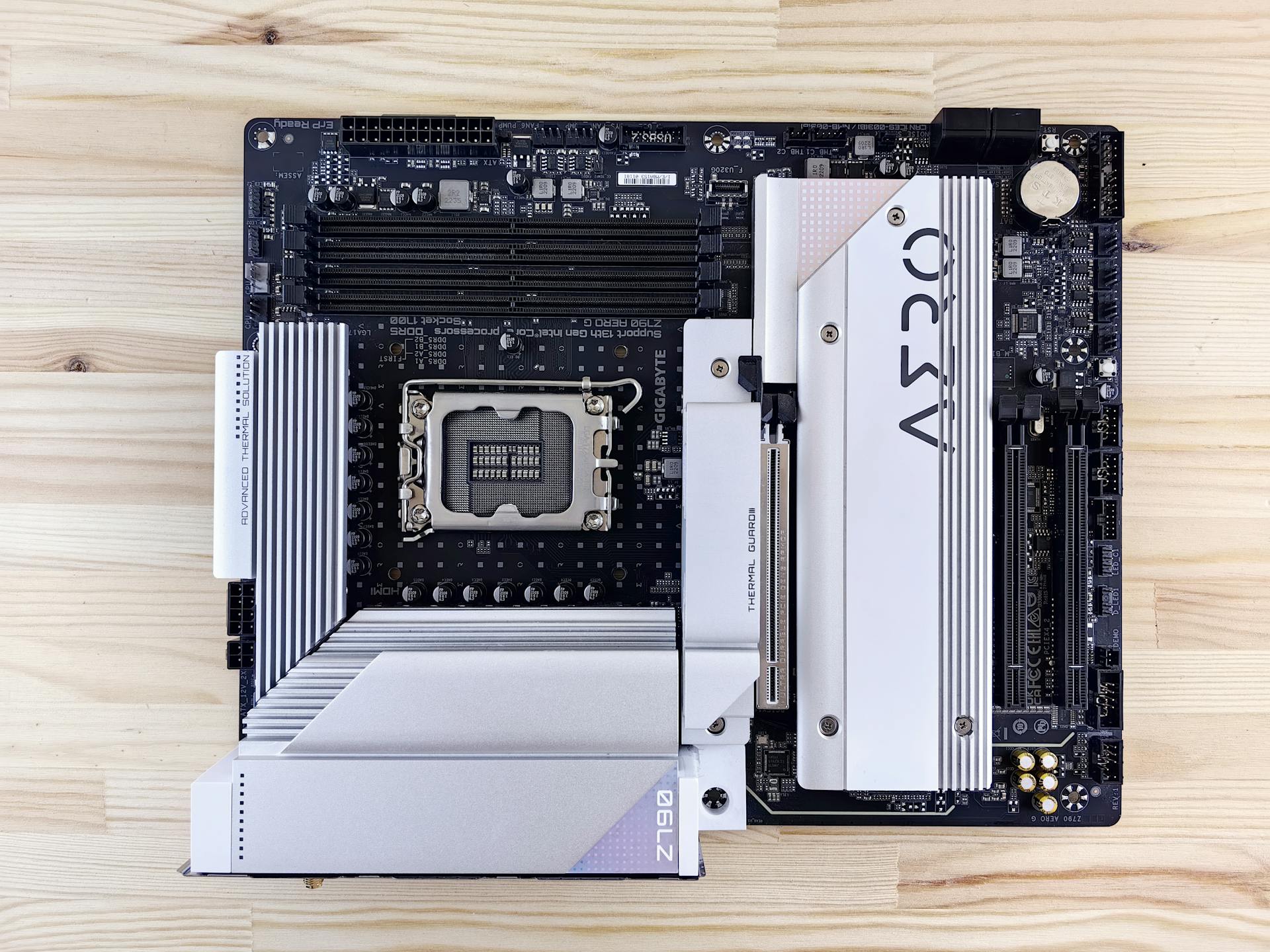
Computer Science and Computer Engineering are two closely related fields, but they have distinct approaches to problem-solving. Computer Science focuses on the theory and design of algorithms, data structures, and software systems.
Computer Science programs typically emphasize the study of computer systems and algorithms, while Computer Engineering programs focus on the design and development of computer hardware and software systems that interact with hardware.
Computer Science students often learn about programming languages, data structures, and software engineering, whereas Computer Engineering students learn about digital logic, microprocessors, and computer architecture.
Computer Engineering programs often require students to take courses in physics, mathematics, and electrical engineering, which is not typically the case in Computer Science programs.
Suggestion: Best Comp Sci Masters Programs
What Is Computer Science?
Computer science is the study of the theory, experimentation, and engineering that form the basis for the design and use of computers. It involves the use of algorithms to process, store, and communicate information.
Computer science is a broad field that encompasses a wide range of topics, from computer hardware and software to artificial intelligence and machine learning. Computer science is used in many areas, including data analysis, cybersecurity, and computer networks.
Computer science is not just about building computers, but also about understanding how they work and how to use them to solve real-world problems. It's a field that requires a strong foundation in math and science.
Computer scientists use programming languages to design and develop software applications, and they must consider factors such as efficiency, reliability, and user experience.
Core Curriculum
In computer science, students typically focus on the core curriculum of algorithms, data structures, computer systems, and software engineering. These subjects provide a solid foundation for understanding how computers work and how to design and develop software.
The core curriculum in computer science also includes mathematics, which is essential for understanding the theoretical aspects of computer science, such as discrete math and calculus. This mathematical foundation helps students analyze and solve complex problems.
Computer science students often have the flexibility to choose electives that align with their interests and career goals, such as artificial intelligence, machine learning, or cybersecurity.
What Is Computer Engineering?
Computer engineering is the fusion of electrical and computer sciences to design, develop, and test computer hardware and software systems.
This field requires a strong foundation in mathematics and science, with a focus on programming languages, algorithms, and computer architecture.
Computer engineers work on a wide range of projects, from designing microprocessors to developing artificial intelligence systems.
They use programming languages like C++, Java, and Python to write software and create algorithms that make computer systems efficient and reliable.
Computer engineers must also have a solid understanding of computer networks, cybersecurity, and data storage systems to ensure the security and integrity of computer systems.
Core Curriculum
The core curriculum is designed to provide students with a solid foundation in core subjects.
Math and language arts are typically considered core subjects, which are essential for future academic success.
In many schools, core subjects are taught at every grade level, from elementary to high school.
Core curriculum standards are often developed by state or national education boards to ensure consistency across schools.
These standards can include specific learning objectives and assessments to measure student progress.
Teachers play a crucial role in implementing the core curriculum, using their expertise to tailor instruction to individual students' needs.
A fresh viewpoint: Comp Sci Schools
Design and Practical Applications
Computer scientists focus on software development, data analysis, and theoretical research, with practical applications in software engineering, data science, and cybersecurity.
Computer engineers, on the other hand, work on the development and optimization of hardware systems, including designing and testing new computer hardware and creating integrated systems for various applications.
Embedded systems are a key area of focus for computer engineers, who design and program systems that integrate hardware and software, as seen in automotive, medical devices, and consumer electronics.
Design
Design is a crucial aspect of computer engineering, where creativity meets technical expertise. Digital Logic Design is a fundamental concept that teaches how digital circuits operate, laying the groundwork for more complex systems.
Computer architecture is the study of a computer's structure and behavior, which is essential for designing efficient and effective systems. This includes understanding how different components interact and how they can be optimized for performance.
Embedded systems integrate hardware and software to create compact and efficient solutions. They're used in a wide range of applications, from consumer electronics to industrial control systems.
Microprocessors and microcontrollers are the brains behind modern electronics, processing and executing instructions at incredible speeds. They're the heart of any computer system, and understanding how they work is crucial for designing and developing new technologies.
Signal processing is a critical aspect of computer engineering, involving the analysis, modification, and synthesis of signals. This is used in a variety of applications, from audio and image processing to communication systems.
Practical Applications
Computer scientists are often involved in software development, data analysis, and theoretical research. They can be found working on a wide range of projects, from developing applications and system software to analyzing large datasets to derive actionable insights.
Software engineers, a subset of computer scientists, specialize in the development and optimization of software systems. They work on applications, system software, and middleware, making it possible for us to use our favorite apps and programs.
Data scientists and analysts are responsible for analyzing large datasets to derive actionable insights. This can help businesses make informed decisions, identify trends, and predict future outcomes.
Cybersecurity is a critical field that requires computer scientists to protect systems and networks from digital attacks. They use their knowledge to develop security protocols and systems that safeguard against threats.
Computer engineers, on the other hand, focus on the development and optimization of hardware systems. They design and test new computer hardware, creating faster, more efficient, and more powerful systems.
Embedded systems, which are integrated systems for various applications, are a key area of focus for computer engineers. They create systems for automotive, medical devices, and consumer electronics, making our lives easier and more convenient.
Robots and automated systems are another area where computer engineers excel. They design and build robots that can perform complex tasks, from assembly line work to search and rescue missions.
Telecommunications is a critical field that requires computer engineers to design communication systems and networks. They work on developing faster, more reliable, and more secure communication systems that connect us all.
Skill Sets and Education
In computer science, you'll develop strong programming skills, with mastery in various programming languages, including Java, JavaScript, and SQL. You'll also gain proficiency in discrete mathematics and linear algebra.
Computer engineers, on the other hand, require a strong general mathematical background, including linear algebra and statistics. They also need to be familiar with computer hardware and have in-depth knowledge of computer systems.
Computer science students typically focus on software development, information system design, and technical writing skills. In contrast, computer engineers need to be proficient in software engineering, including coding, testing, and program design.
A computer science degree can lead to various roles, including software development and design, while a computer engineering degree typically leads to roles in hardware development and integration. However, computer science graduates can also pursue computer engineering roles with additional training.
To succeed in computer engineering, you'll need excellent communication skills, strong analytical skills, and the ability to work well with diverse teams. Computer engineers also require a strong background in math, including linear algebra, number theory, and graph theory.
Here's a comparison of the essential skills for computer scientists and computer engineers:
Keep in mind that while there are differences between computer science and computer engineering, both fields require a strong foundation in programming, math, and problem-solving skills.
Career and Salary
Graduates of computer science and computer engineering programs often find themselves in high-paying roles, with median salaries ranging from $95,360 to $130,160 per year.
The computing and information technology sector is rapidly growing, making both computer science and computer engineering jobs highly competitive and above average in terms of salary. According to the BLS, the median US salary for computing and mathematical fields such as CS and CE is $113,140.
Some specific job titles and their corresponding median salaries include:
- Computer network architects: $129,840
- Software developers, quality assurance analysts, and testers: $130,160
- Database administrators and architects: $117,450
- Network and computer systems administrators: $95,360
- Web developers: $92,750
Computer hardware engineers, in particular, can expect to earn an annual median salary of $119,560 - 128,170.
Career Paths
You can pursue a wide range of career paths with a computer science or computer engineering degree.
Graduates typically find roles such as software developers, data scientists, cybersecurity analysts, and research scientists.
Graduates often pursue careers such as hardware engineers, embedded systems engineers, firmware developers, and network engineers.
The job market for computer science is growing much faster than other occupations, with a 21% projected growth until 2031.
Here are some examples of computer engineering jobs:
- Computer architect
- Circuit designer
- Communications engineer
- Network systems engineer
- Network architect
- Systems programmer
- Systems architect
- Systems engineer
- Hardware engineer
- Game developer
- Forensic computer analyst
- Computer research scientist
Salary Comparisons
Salary Comparisons are often a top concern for those considering a career in computer science or computer engineering. The good news is that both fields have competitive and above-average salary ranges.
The median US salary for computing and mathematical fields, including computer science and computer engineering, is $113,140. This figure gives you a general idea of the salary range for these fields.
Computer network architects can expect to earn a median salary of $129,840, making them one of the highest-paid professionals in this field. On the other hand, network and computer systems administrators have a lower median salary of $95,360.
A unique perspective: Comp Sci Fields
Here's a breakdown of the median salaries for various CS and CE-related jobs:
Computer hardware engineers have a median salary range of $119,560 to $128,170, making them one of the highest-paid professionals in the field. With a master's degree in computer science, you can expect to earn around $131,490 per year when starting out.
Interdisciplinary Overlaps
Interdisciplinary Overlaps are a key aspect of computer engineering and computer science. Computer science and computer engineering share a significant overlap, especially in areas where hardware and software must work together.
Embedded Systems require both software and hardware to function in harmony, making it a prime example of this overlap. This is evident in the fact that computer science and computer engineering often intersect in areas like Embedded Systems.
Robotics is another field where mechanical engineering, computer engineering, and computer science come together. The integration of hardware and software is crucial in Robotics, making it a perfect example of interdisciplinary overlap.
The Internet of Things (IoT) is a rapidly growing field that also showcases this overlap. IoT devices require both hardware and software to be integrated, creating a network of interconnected devices.
Some of the key job titles that demonstrate this overlap include:
- Computer architect
- Circuit designer
- Communications engineer
- Network systems engineer
- Network architect
- Systems programmer
- Systems architect
- Systems engineer
- Hardware engineer
- Game developer
- Forensic computer analyst
- Computer research scientist
Degree Programs and Specializations
Degree programs in computer science and computer engineering can be a bit overwhelming, but it ultimately comes down to what you want to focus on. If you want a more well-rounded and diverse skill set that will help you advance your career in software, data and machine learning across any number of industries and applications, pursuing a master's in computer science may make sense.
You don't necessarily need a computer science degree to be a software engineer or computer engineer, but the degree program will deepen your understanding of why things work the way they do, increase your confidence, and open doors to leading employers.
To choose the right degree program, you'll want to think about your long-term goals, your desired salary, and what you're most interested in. This will help you pinpoint what you want from your degree program and choose a school that fits your learning needs and desired career outcomes.
Recommended read: Does Ai Replace Software Engineers
Degree Programs
If you're considering a degree program in computer science or computer engineering, it's essential to think about your long-term goals and desired salary.
Pursuing a master's in computer science can increase your salary potential and make it easier to secure work in a field you'll find intellectually stimulating.
Computer science and computer engineering degree programs differ in their focus, with computer science providing a more well-rounded and diverse skill set.
To decide between a master's in computer science and computer engineering, pinpoint what you want from your degree program, including your desired salary and career outcomes.
The MCS@Rice program offers a holistic approach to computer science fundamentals and high-demand job skills.
Here are some key features of the MCS@Rice program:
- Flexible self-paced lectures and engaging live sessions
- Holistic approach to computer science fundamentals and high-demand job skills
- Experiential projects throughout the program and a comprehensive capstone project based on real-world data
- Expert educators with hands-on learning opportunities
- Business acumen and project management skills for leadership roles
What a Master's Degree Offers
A master's degree in computer engineering can open doors to exciting career opportunities. With this degree, you'll be able to work as a hardware engineer to design new machines and components.
You'll have the skills to create functional hardware and firmware elements, and can apply them across different industries. Computer engineers can design machines like computers, servers, and chips, as well as hardware systems and equipment.
A master's in computer engineering can lead to careers such as computer hardware engineer, computer network architect, or computer or information systems manager. Computer hardware engineers design machines like computers, servers, and chips, hardware systems, and equipment including circuit boards, routers, and processors.
The career field of computer engineering is projected to grow 5% between 2021-2031, which may seem slow compared to other fields. However, this growth can still lead to interesting opportunities for existing computer hardware engineers.
Frequently Asked Questions
Is Comp Sci or engineering better?
The choice between computer science and computer engineering depends on your career goals and interests. Consider software and programming for computer science, or hardware and system design for computer engineering.
Is computer systems engineering better than computer science?
There is no definitive answer to which is "better," as both computer systems engineering and computer science offer unique career paths with varying interests and goals. The choice between them depends on individual preferences and career aspirations.
Sources
- https://www.hotbot.com/answers/what-is-the-difference-between-computer-science-and-computer-engineering
- https://www.onlineengineeringprograms.com/faq/computer-engineering-vs-cs
- https://www.coursera.org/articles/computer-science-vs-computer-engineering
- https://www.nu.edu/blog/computer-science-vs-computer-engineering-whats-the-difference/
- https://csweb.rice.edu/academics/graduate-programs/online-mcs/blog/computer-science-vs-computer-engineering
Featured Images: pexels.com


